Mozambique: Naparamas murder policemen in Nivenevene, Chiúre district - AIM report
Cyclone Idai: Developed countries owe Mozambique “support” and “solidarity”
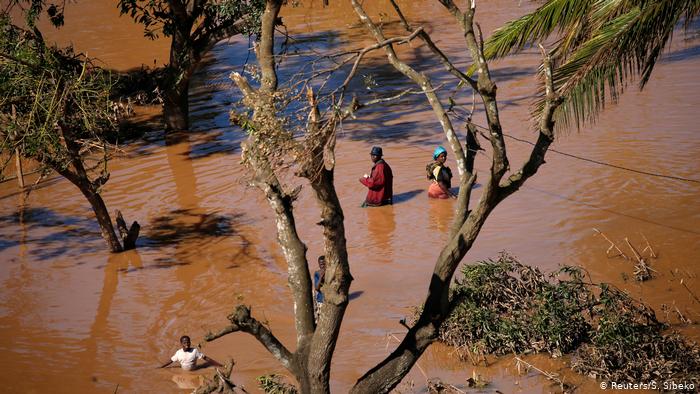
Photo: DW
Speaking on the sidelines of a Mo Ibrahim Foundation annual event on the Ivory Coast, former Mozambican head of state Joaquim Chissano, and former president of Liberia, Ellen Johnson Sirleaf, called for aid to Mozambique.
Former President Joaquim Chissano called on Sunday (07.04) for aid to Mozambique to continue to flow, and asked for solidarity from the biggest contributors of aid to climate change countries.
“The appeal for help continues. The response has already come, but we cannot stop there. The death toll is high. More bodies may be found, not counting people dying from cholera and malaria,” Joaquim Chissano said.
The former Mozambican head of state spoke to the Lusa news agency in Abidjan, Ivory Coast, on the sidelines of the Mo Ibrahim Foundation’s governance weekend, which is dedicated to promoting good governance in Africa. As in previous years, the Foundation did not in 2018 award the Mo Ibrahim Prize to any one personality.
Climate change
The destruction caused by Cyclone Idai in Mozambique, Zimbabwe and Malawi has relaunched the debate on compensation for countries that are the smallest contributors to climate change, but which most suffer the consequences.
Asked about this issue, Joaquim Chissano said that, in his opinion, it was not a matter of “compensation or reparation”, but of solidarity. “[I would] like countries the that can, to sympathise with those who cannot, given that those latter countries emit little carbon into the atmosphere,” he said.
“When we talk about solidarity, these countries know what their responsibilities are. It is not only this aspect. There are others, like the lag in development, illiteracy, slavery,” he added.

Joaquim Chissano said that it does not make sense to today “demand that young Portuguese pay for what their grandfathers did”, but that “new generations must understand that there must be solidarity” in a global world. On the other hand, he acknowledged that the issue of compensation is “a matter that has to be examined in depth”, and that the carbon credit market has proved “a very complicated process”.
“Build in new places”
To Chissano’s mind, it is now time to rethink the matter of human habitation. “There are areas it is not sensible for people to come back to. We have to find an alternative and convince people to build in new locations, and later to think about the cities themselves,” the former president said. “Mozambican cities are all poorly located, below sea level – Maputo, Beira, Quelimane – and are prone to flooding, so we need to think about that.”
While admitting that it takes “a lot of money”, that “one cannot change a city from one day to the next” and that, in a “very poor” country, the project of changing the location of cities is the “priority furthest away”, Chissano maintains that “one should not stop thinking about it”. “We have done this in the Limpopo River basin and relocated people to safer places. In Mozambique, we have to continue working so that, when a new [weather] phenomenon occurs, we are prepared,” he said.
Compliance with the Paris Agreement

On the same occasion, economist and Nobel Peace Prize winner Ellen Johnson Sirleaf called for compliance with the Paris Accord. “In Mozambique we have been able to see the full extent of climate change and the devastation it can cause. We have to deal with this and comply with the agreement signed in Paris,” she said.
For the former president of Liberia, the climate agreement signed in 2015 is “clear” on support, because the countries that are the smallest contributors suffer the effects of climate change the most.
“We have signed an agreement on the climate in Paris, and we must all implement and respect it. It is clear from this agreement that developed countries, which use the natural resources of poor or developing countries, owe them – I would not call it compensation – but support,” she said.
“Mozambique, for reasons over which it has no control, needs this support, and needs support from Africa, African institutions, Europe and development finance institutions, because the affected populations bear no responsibility.”


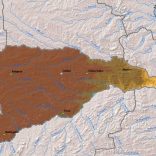
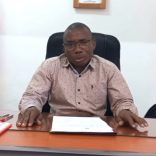


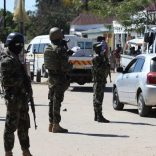
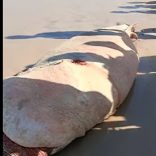




Leave a Reply
Be the First to Comment!
You must be logged in to post a comment.
You must be logged in to post a comment.